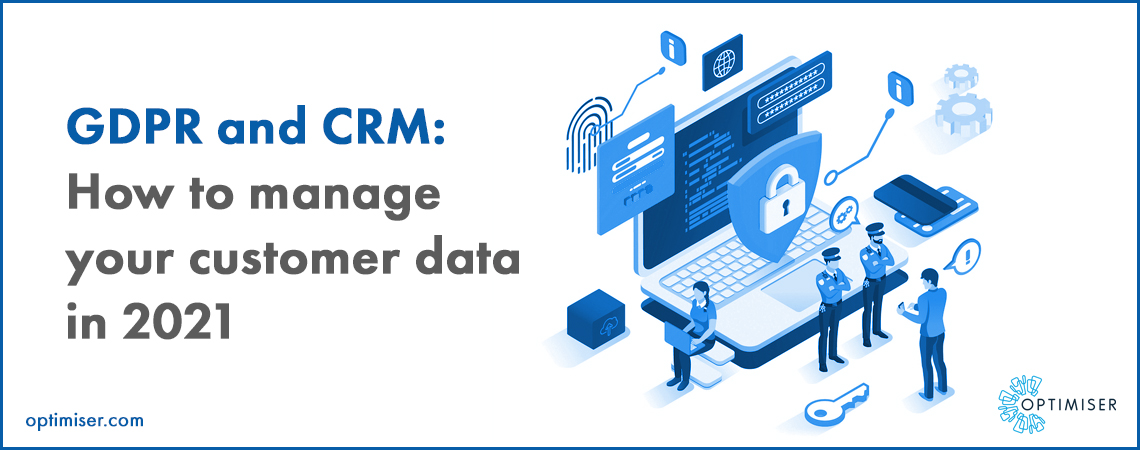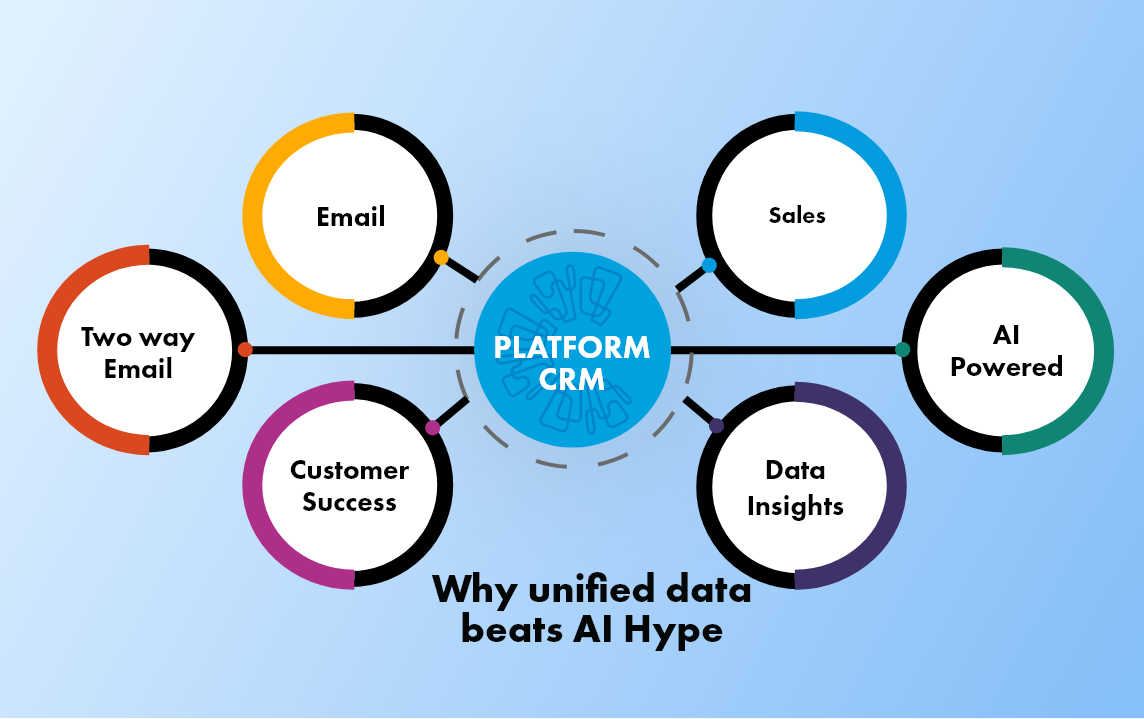
CRM
GDPR and CRM: How to manage your customer data in 2021
What do I need to know about customer data?
How companies can choose to handle customer data
How does Optimiser’s CRM handle my customer data?
Is my data GDPR protected in a CRM system?
GDPR states that it’s the company's responsibility to protect customer data through rules for its collection and storage. By not doing so, your business is vulnerable to lawsuits, fines and more. Read on to discover how your CRM is the ultimate tool to manage customer data in a GDPR-friendly way.
What is GDPR?
GDPR stands for General Data Protection Regulation: Europe’s data privacy and security law for businesses globally. Hundreds of pages long, the document formally sets out the laws under which companies must store and protect their company’s private data, from employees to customers.
What do I need to know about customer data laws and regulations?
While the document itself is incredibly complex, the basic message of the document is that companies must work to protect the personal data of the people they are collecting information about, this encompasses:
- Personal information such as name, date of birth
- Contact details such as phone number, email address, and home address
- Sensitive personal data such as race, gender, political beliefs and other
- Financial information such as banking account, payment details and purchase history
When customers are trusting big chunks of their personal data to companies that store it all on the cloud, it is the onus of you, the company, to:
- Store that data securely
- Collect as little data as possible
- Ensure the data your are collecting is accurate
- Make the data available to customers upon request
By not doing so, your business is vulnerable to lawsuits, fines, and more.
.jpg)
How companies can choose to handle customer data
When it comes to customer data, it is vital for businesses of any size to take it seriously as all businesses no matter the industry are held under the same laws and regulations. Small businesses tend to be at heightened risk from cyber attacks because attackers often assume the security they have in place will be easier to disassemble.
- Protection by firewalls
- Encryptions
- Encourage your account-holding customers to create secure passwords
- Anti-virus, anti-malware and anti-spyware software
- Regular system updates
- Collect only necessary data
- Limit access to your data to only the necessary parties
How does Optimiser’s CRM handle my customer data?
CRM is an automatable customer relationship handling tool, specialised for dealing in personalised retention and loyalty building, as well as large audience data handling and analysis. By collecting customer data at each step of the customer’s journey with your brand, CRM enables you to:
- Create pipelines with effective onboarding strategies and move new prospects quickly and efficiently from discovery to advocacy
- Make strong predictive forecasts using historic data trends and analytics
- Generate easy-to-read reports in the form of charts and graphs for quick business insights
- Create three-dimensional customer profiles with Contact and Account data helping to:
- Personalise communications
- Create audience segments
- Understand who your audience are
- Tailor products and services to meet the unique needs of your audience
.jpg)
CRM data handling tools include:
Pipeline
- Lets you track the full customer cycle from the first interaction with your brand. Onboard efficiently and swiftly, and implement context-specific strategy
Contacts
- Collects individual data on a contact; their personal preferences and demographic information, making your marketing and sales more valuable
Accounts
- Purchase information, key contact information. Helps track and monitor subscriptions, handle renewals and create proxy sales
Analytics
- Compare and interpret data from across the full scope of your business, create spreadsheet-free charts and graphs, and share your findings securely on-platform with two-factor verifications
Integrated suites
- With Optimiser, all the solutions you need are just a few clicks away. Customise your subscription to meet the unique needs of your business: whether you want to focus on Marketing, improve your Project Management, or host Events at their full selling power. Use data automations across your business to better understand your success metrics, improve customer relationships, and use contextual insights to revolutionise the way you do business.
Is my data GDPR protected in a CRM system?
CRM systems adhere to a set of data protection guidances, but differ in terms of how they are encrypted, the levels of protection you can expect, and the security of the physical hardware location.
Firewalls:
You may have heard of a firewall but not know exactly what it is. It is a piece of software that acts as a “wall”, filtering incoming traffic according to a set of rules to keep out hostile traffic or viruses. While your hardware will have one built-in, your CRM provider will also use one: giving your customers’ data double the protection.
Cloud Services:
Because CRM systems are hosted on the cloud, your software provider’s updates are automatically applied to your system: meaning it is always protected by the latest security updates implemented. Aside from maintaining the upkeep of your hardware protection, you can be assured in the knowledge that your CRM data is protected by the very latest technology.
Encryptors:
File encryption software applies scrambling algorithms to your data, and separately creates a unique unscrambling key that only intended parties can access. Even if someone unintended did gain malicious access to your CRM, company data should remain scrambled and therefore safe.
Try Optimser’s CRM system today for totally secure customer data storage, unlimited file space and customisable security settings including off-platform sharing with two-factor verification, and personalisable user folder access.
Optimiser is a comprehensive CRM software company, providing businesses a customisable solution to their personal goals for sales, productivity, and growth. Powerful integrated modules include lead management software, a B2B sales toolkit, automated marketing suite and more for sale under a single subscription. Try Optimiser’s CRM software demo with access to the full Enterprise Licence FREE for 30 days, and find out how you can skyrocket productivity in just one month!

30 days free trial. No credit card required
 One powerful platform
One powerful platform
 Simple to use
Simple to use
 Comprehensive
Comprehensive



